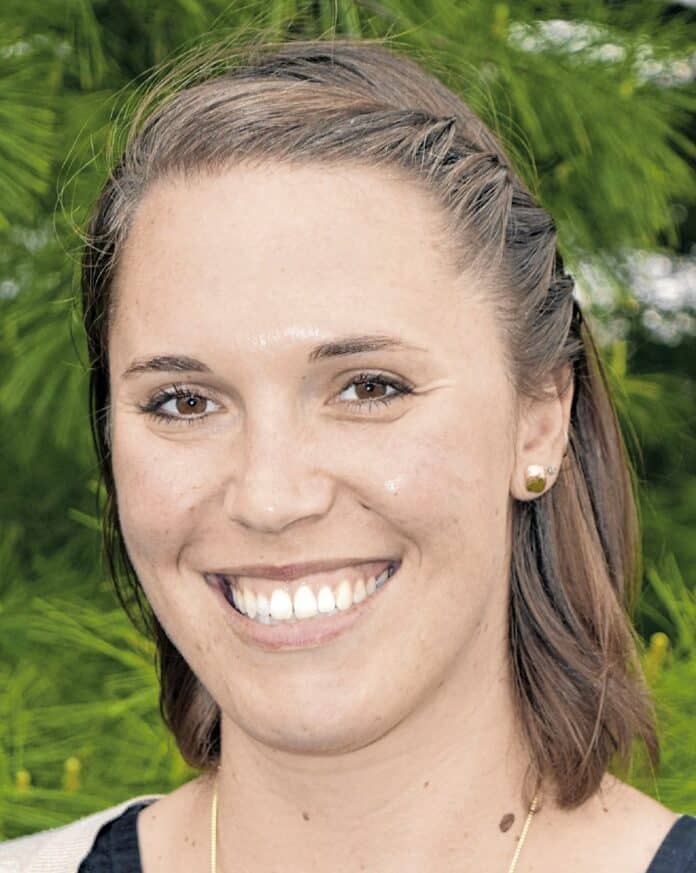By KARA HAMMES, guest columnist
Like me, you may have read the feature on Mother’s Cupboard Community Kitchen in the Oct. 23 issue of the Brown County Democrat and been moved by their level of service to the community — including 43,000 hot meals served in 2018, an average of 130 hot meals served a night, and literal tons of food provided for free from their food pantry.
With those stats fresh on my mind, and as we approach the holiday season, I wanted to take this opportunity to talk more about food insecurity and hunger in Brown County and ways that you can help make a difference.
The USDA defines food insecurity as “a lack of consistent access to adequate food for an active, healthy life.” It is a household-level economic and social condition of limited or uncertain access to food.
Meanwhile, hunger is an individual-level physical sensation of discomfort — and in cases of food insecurity, the USDA explains that the hunger experienced due to “prolonged, involuntary lack of food, results in discomfort, illness, weakness, or pain that goes beyond the usual uneasy sensation.”
Hunger and food insecurity go hand-in-hand — Is it available? Is there enough? Is it healthy? Can we afford it? Can we access it? Can and do we prepare it? These are issues in every country of the world, even the United States, and certainly even here in Brown County.
According to Feeding America, a nationwide network working to feed America’s hungry and fighting to end hunger: 10.2 percent of the overall population of Brown County is considered food insecure, while 14.3 percent of the children in Brown County are considered food insecure.
Brown County Schools report that on average, 56.5 percent of the students qualify for free and reduced price meals (with schools ranging from 48 to 67 percent of students).
Beyond simply having the time, money and energy to shop and cook, there are many other factors that affect a family’s ability to buy and prepare fresh foods, such as housing, utilities, transportation, accessible food markets and a stocked pantry. Access to a kitchen equipped with a working refrigerator, stove or even a microwave — not to mention the required pots, pans and utensils — is not always a guarantee for low-income families.
Food insecurity and hunger aren’t just an inconvenience; they have direct health effects, especially for children, and can affect physical, mental and emotional development; attendance at school and work; the ability to concentrate and complete complex tasks; along with many other potentially serious consequences.
SNAP, WIC and other governmental assistance programs are not sufficient to address the problem of food insecurity in the United States. In Indiana, of the 18 percent of children who are considered “food insecure” only 71 percent of those children are in families who are eligible for WIC or other child nutrition programs. This is why charitable food assistance is necessary and why your support of these programs is so vital.
So, if you’re looking to make your own contribution to the fight against food insecurity and hunger, here are some ideas and other things to keep in mind:
Make your food donations “balanced.” Have you included a variety of shelf-stable products from different food groups? Vegetables, fruits, proteins, grains and even dairy are all possible to find in non-perishable food items. What about some foods that are essentially “ready-to-eat” straight out of the package, or maybe only require microwaving? As discussed above, some families do not have the kitchen facilities, utilities, or skills required to cook a meal from scratch.
Clean out the pantry to make a donation before heading south for the winter. If you only live in Brown County for part of the year, consider cleaning out your pantry, fridge and freezer to make a donation of non-expired food before you leave for the season.
Restaurants, caterers and grocers can donate surplus food. This includes both unprepared and prepared foods, and it’s usually a good idea to call ahead to confirm before making this type of donation.
“Plant a row” for donation in next year’s garden. Fresh produce is one of the most needed categories of food items at food pantries and soup kitchens. If you’re a farmer or gardener, consider donating your surplus harvest, or specifically designating a portion of your crop for donation.
There’s more you can donate than food:
Personal hygiene items. Most food pantries will accept (and welcome!) donations of personal hygiene items like shampoo, conditioner, soap, feminine hygiene supplies, laundry detergent, toothpaste, toothbrushes, etc.
Money. Food pantries and soup kitchens are often able to purchase food at a set price per pound from area food banks, and also have other needs beyond food in order to remain open and able to serve.
Time. No organization can survive on physical or monetary donations alone; volunteers are critical to their success, so consider donating your time and skills to assist as well.
According to the 2019 Directory of “Who’s Where in Brown County” available from the League of Women Voters of Brown County, these are the food pantries and/or soup kitchens currently operating in Brown County:
- Mother’s Cupboard Community Kitchen, 802 Memorial Drive, Nashville, IN 47448, 812-988-8038, seven days a week, 4 to 6 p.m.
- North Salem United Methodist Church, 7718 State Road 46 East, Nashville, IN 47448, 812-988-2786, first Thursday of the month, 1 to 2 p.m.
- Salvation Army, 168 S. Jefferson St., Nashville, IN 47448, 812-988-7019, Wednesdays and Fridays, 10 a.m. to 1 p.m.
- St. Vincent DePaul Society of Nashville, 2901 Long Lake Road, Nashville, IN 47448, 812-988-8821, Saturdays and Mondays, 10 a.m. to noon.
Food insecurity and hunger are not issues with simple solutions, but there are ways we can all help. If you’re interested in learning more, a lot of great information and interactive data is available through Feeding America, the USDA Economic Research Service (including the “Food Access Research Atlas” and the “Food Environment Atlas”), and County Health Rankings.
Kara Hammes, MPH, is the Brown County Purdue Extension educator for health and human sciences and agriculture and natural resources. She can be reached at 812-988-5495 or [email protected].





